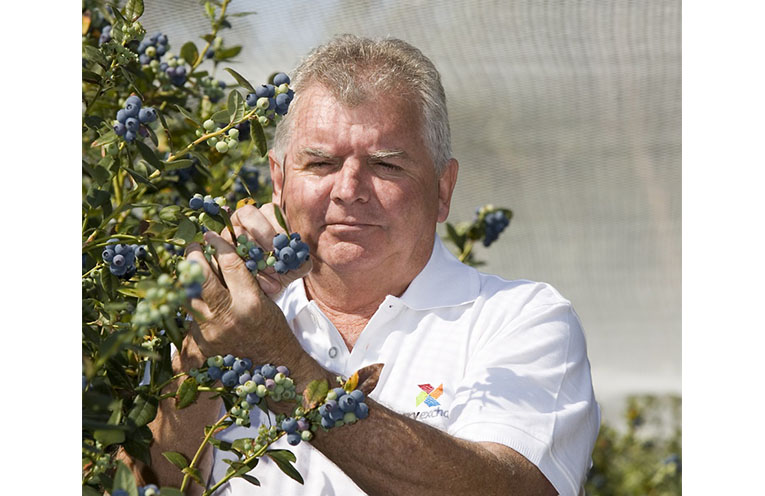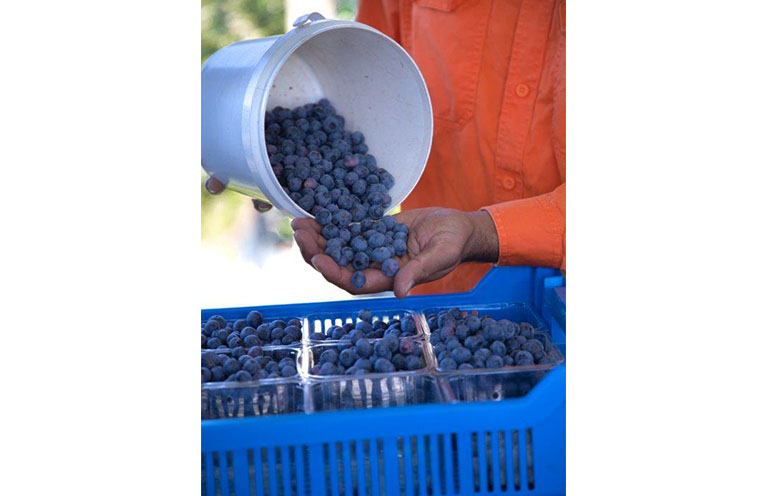
BERRIES Australia has welcomed the announcement this week of an Agriculture visa by the Australian government.
The Australian Agriculture visa will be available to workers across the agriculture, fisheries and forestry sectors and provide a basis for the ongoing growth of Australia’s primary industries as they strive to reach $100 billion in value by 2030.
Peter McPherson, Chair of Berries Australia, said the announcement was positive news for the berry sector which had been struggling to find harvest workers since the borders closed due to COVID.
“The $1.4 billion berry sector has a heavy reliance on manual pickers due to the soft nature of the fruit and whilst historically we have employed backpackers, a stream of dedicated workers who want to work in the sector is very welcome,” Mr McPherson said.
“It is important to remember that these workers are creating jobs for Australians not taking them away as these pickers and packers mean we can employ more locals in longer term roles and they generate significant economic activity in regional communities.
“The Australian berry industry’s priorities are that the visa has high standards to ensure worker welfare, and that workers have flexibility to move between growing regions and follow the harvest work.”
Mr McPherson told News Of The Area, “Berries Australia is committed to the ethical treatment of workers and many of our growers have ethical sourcing programs like Fair Farms or SEDEX in place.
“We also continue to call on the government to implement a national labour hire licensing scheme.
“Berries Australia would like to thank Agriculture Minister Littleproud and Deputy Prime Minister Joyce for their commitment to the visa and we look forward to working with government to ensure that the visa meets the needs of the berry sector.”
Mr McPherson said, “We have worked closely with other industry associations such as the National Farmers’ Federation Hort Council and the Australian Fresh Produce Alliance to make the case for this visa and would like to thank them for their efforts.”
Executive Director Rachel Mackenzie said, “Whilst the visa is welcome news it is unlikely the workers will arrive in time to alleviate worker shortages for this season.
“That said local growers have been able to take advantage of the Pacific worker scheme and these workers will have an important role in getting fruit to market this year.”
The Minister for Agriculture, Drought and Emergency Management, David Littleproud said the visa announcement is a huge relief to the agriculture industry that has been crying out for a secure workforce.
According to Mr Littleproud, “This visa will be extended to all ten ASEAN countries in view of our close and long standing economic ties with the region.
“The new seasonal agricultural worker visa would mirror the existing Seasonal Worker Programme and will add to the pool of workers available to work on Australian farms,” he said.
“Like the Seasonal Worker Programme, the new visa arrangement will have protections to ensure workers are protected, not subject to exploitation and that the visa is not misused.
“Pay and conditions, health, and work and safety will also be in line with similar requirements and protections under the Seasonal Worker Programme,” said Mr Littleproud.
The Australian Workers Union (AWU) however is not convinced and states the scheme is designed to replace the flow of easily exploited workers that will be lost to the system after a new free trade deal with Britain scrapped the 88-day work requirement from British working holiday visas.
AWU National Secretary Daniel Walton said, “Johnson rightly told Morrison he needed to scrap the 88-day requirement for Brits to work on Australian farms, because they were being routinely exploited and abused.
“But now David Littleproud is telling Southeast Asians to come on down for the same treatment,” he said.
“Much of the labour shortfall on farms could be made up quickly by providing Australian-standard wages and protections.
“Where there are still gaps, programs like the Pacific Labour Scheme and the Seasonal Worker Program are much better than simply opening the gates to vulnerable Southeast Asian workers without adequate rights and protections.”
By Sandra MOON


Thanks for including Fiji. Lots of people are happy to hear about this visa. Some have already formed groups and are monitoring the development of this visa. Common guys Fiji is waiting. 2nd jab already in Fiji. We won’t disappoint you Assie.